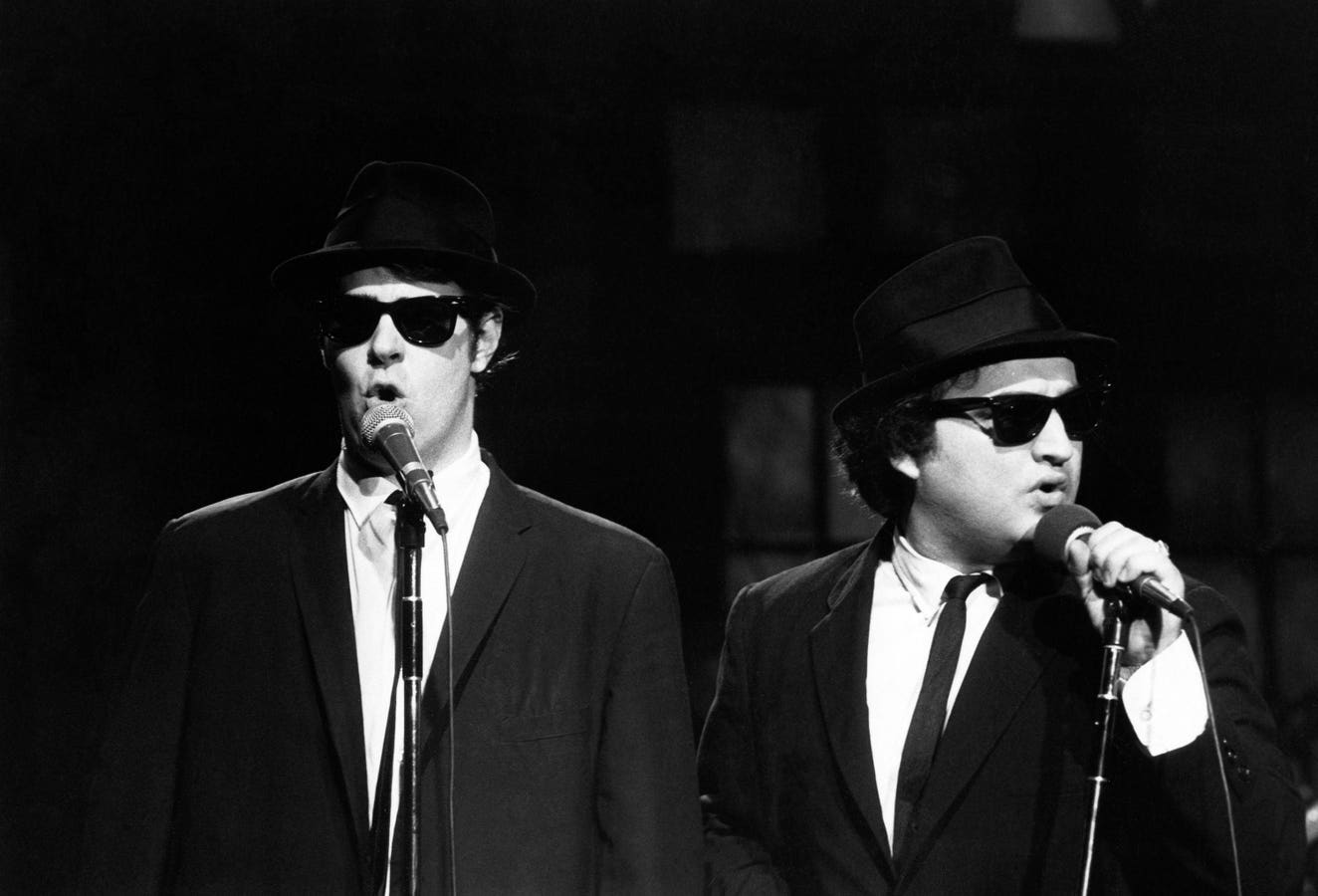Few things in comedy or in business are as timeless as a good catchphrase. Some fade into obscurity; others, like “More Cowbell”, become part of the cultural lexicon. Christopher Walken’s now-iconic demand for ‘more cowbell’ in a 2000 Saturday Night Live (SNL) sketch wasn’t just a punchline, it became shorthand for anything that needed just a little extra.
That’s exactly what we’re seeing now. As SNL marks its 50th anniversary, it’s demonstrating how comedy’s cultural impact can extend beyond the screen, transforming nostalgia into consumer demand and iconic moments into tangible products.
For half a century, SNL has been a reflection of the world, satirising politics, shaping conversations, and launching careers. But it has also, in its own way, become a cultural touchstone, its influence extending far beyond television, shaping trends, conversations, and even consumer choices.
From Maverick Disruptors to Global Influence
That’s quite the feat for a show that almost didn’t survive its first night. When SNL premiered in 1975, expectations were low, and the network wasn’t convinced that sketch comedy, especially live sketch comedy had a future. It was messy. Unpredictable. Chaotic.
But it worked.
Because SNL wasn’t just about the jokes it was about the connecting with the latest ‘moment’. Each week, the programme has worked to capture the mood of the country, giving voice to the absurdity of politics, pop culture, and everyday life. It wasn’t just about the laughs, it was about creating a shared cultural moment, a sense of belonging.
More Cowbell, More Cash: How Retail is Tapping Into SNL50
What makes consumers open their wallets? For its golden anniversary, SNL is proving that nostalgia isn’t just an emotion, it’s a powerful retail force, transforming cultural moments into coveted products.
Saks Fifth Avenue has embraced the celebration with an exclusive collection featuring sweatshirts and accessories inspired by the show’s most iconic sketches. Luxury fragrance brand Le Labo has joined in with a limited-edition candle, reimagined with bespoke packaging and a nod to SNL’s legacy. Meanwhile, fashion label Favorite Daughter has introduced a playful range of t-shirts, baseball caps, and more. The flagship Saks Fifth Avenue store has dedicated a special in-store space to showcase the collaboration, turning nostalgia into an immersive shopping experience.
The Blues Brothers Effect: When SNL Becomes More Than a Show
Of course, this isn’t the first time SNL has moved beyond television. The show’s history is littered with pop culture spin-offs, but perhaps none with as lasting legacy as The Blues Brothers.
What started as a one-off sketch featuring John Belushi and Dan Aykroyd quickly became something much bigger – an enduring part of music and entertainment culture. Within two years, The Blues Brothers had evolved into a hit album, a cult-classic movie, and a real-life touring band.
Recognising its momentum, Aykroyd went on to co-found House of Blues, a chain of live music venues, restaurants, and retail stores that celebrate the spirit of the blues. Now owned by Live Nation, House of Blues has become a lasting tribute to the act, with its stores still proudly retailing Blues Brothers-inspired memorabilia and music, keeping the brand alive for new generations.
The Blues Brothers legacy hasn’t stopped there. A live festival continues to bring fans together, celebrating the act’s deep roots in blues and soul music. And Aykroyd himself has continued with entrepreneurial flair developing Crystal Head Vodka – a premium spirits business that reflects his knack for turning entertainment into successful ventures.
The Retail Business of Nostalgia
In an era where attention is fleeting and brand loyalty is hard-won, SNL has achieved what few cultural institutions can: enduring relevance. Its viral sketches amass millions of views on platforms like YouTube and social media, while its alumni ascend to Hollywood prominence. Notably, SNL’s creative output has translated into significant commercial success, with its feature films collectively grossing hundreds of millions of dollars worldwide.
When Wayne’s World transitioned from SNL sketch to a feature film in 1992, it not only dominated the box office with over $183 million in global earnings but also became a merchandising powerhouse, inspiring a range of products from apparel to video games.
Looking ahead, SNL’s commercial influence shows no signs of slowing. As entertainment consumption shifts toward digital platforms and immersive experiences, the show’s ability to reinvent itself across different mediums will be key to its continued success. Streaming deals, live events, and high-profile collaborations suggest a future where SNL isn’t just a TV institution but a broader entertainment brand, one that extends into fashion, music, and even hospitality. If the last 50 years have proven anything, it’ that SNL doesn’t just adapt to cultural change; it also finds new ways to monetise it.
More cowbell. More retail. More ways to keep a legacy alive.
Read the full article here





